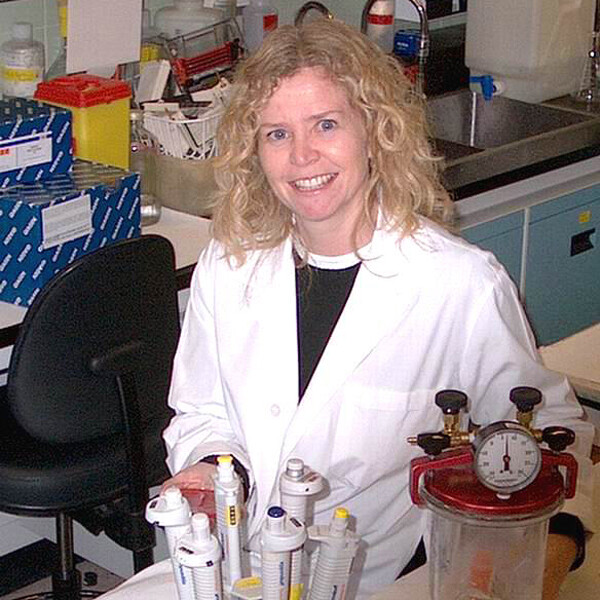Nicola Jones
PhD

Research Synopsis
Keywords: Translational research; Animal Models; Cell Biology; Cancer; Microbiology; Autophagy; Inflammatory bowel disease; peptic ulcer disease; Immunology.
Detailed Description:
My research focuses on understanding the interaction between enteric microbes and the host in relation to disease pathogenesis. Our work has primarily focused on the gastric pathogen Helicobacter pylori. H. pylori causes a chronic infection in over 50% of the world’s population and is directly linked to the development of peptic ulcers and gastric cancers. A vigorous immune response develops during H. pylori infection. However, this host response is insufficient for clearance of infection. Therefore, we hypothesize that H. pylori must possess strategies to subvert host responses to promote chronic infection and ultimately lead to the development of disease. My laboratory has focused on determining these mechanisms and how they may be related to disease in particular gastric carcinogenesis.
The second major and related area of focus in my laboratory is understanding disease pathogenesis of inflammatory bowel disease. The current model for inflammatory bowel disease is that the genetically susceptible host inappropriately responds to intestinal microorganisms. An unexpected pathway, the autophagy pathway, was recently identified by genome wide association studies to be involved in Crohn disease pathogenesis. The mechanisms by which variants in ATG16L1 alter autophagy in response to microbes, thereby promoting intestinal inflammation, remain unknown and are the focus of our research.
METHODS USED
Cell and tissue culture: Epithelial cells, dendritic cells.
Procedures: Elisa, gene expression analysis, immunohistochemistry, microarrays, signal transduction characterization, siRNA, western blot.
EQUIPMENT USED
Analytical balances, benchtop centrifuge, blotting apparatus, culture hood, culture incubators, gel apparatus, low- and high-speed centrifuge, microwave oven.
PRESENT TRAINEES
Ted Wu
David Rizzuti
Frances Dang
Laura Greenfield
PRESENT COLLABORATIONS
Within the Department of Physiology:
Patricia BrubakerOutside the Department of Physiology:
Mark Silverberg
Dana Philpott
Stephen Girardin
John Brumell
Emad El Omar
Richard Peek
Lawrence Pazsat
Steven Blanke
Jack Satsangi
Tomatsu Yoshimori
Committee member/officer of national/international scientific organizations
PI/ Scientific Director for Canadian Child Health Clinician Scientist Program
Recent Publications
http://www.ncbi.nlm.nih.gov/pubmed/26123645
Appointments
Primary: Paediatrics
IMS
